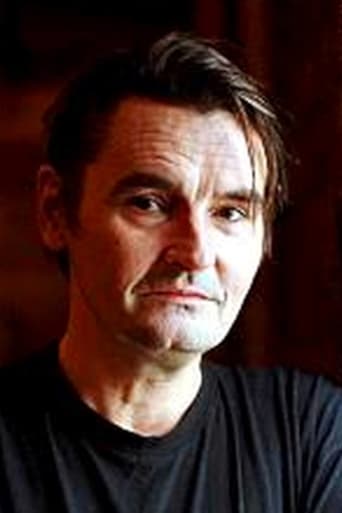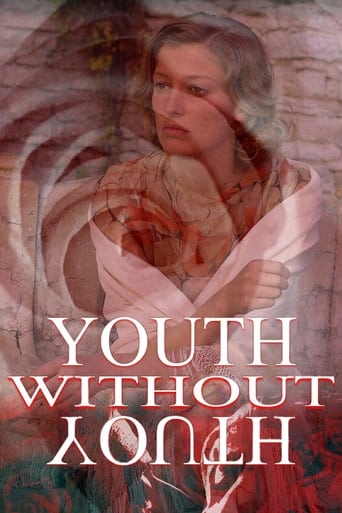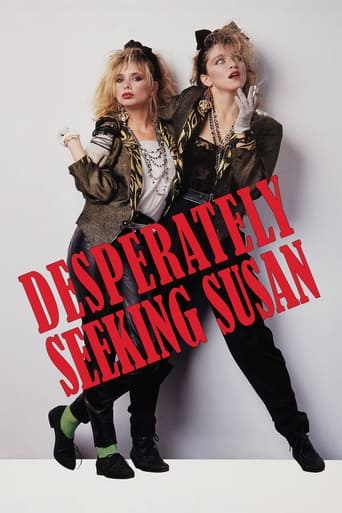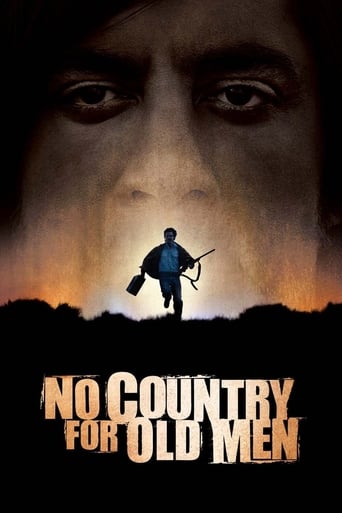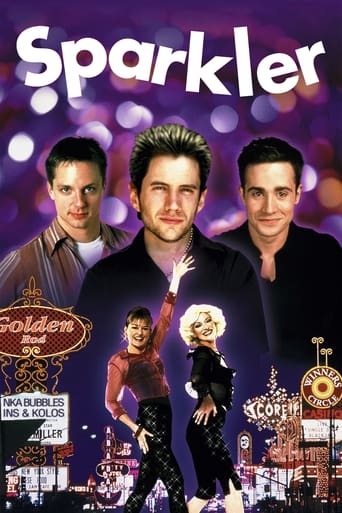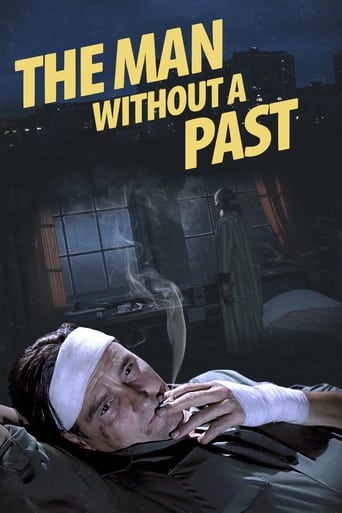
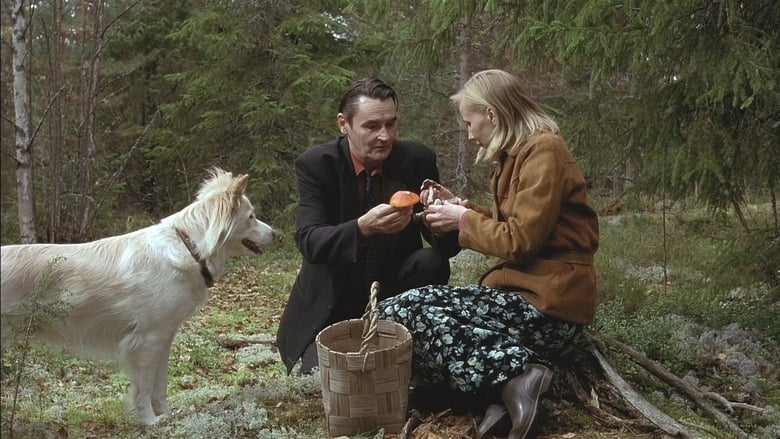
The Man Without a Past (2003)
Arriving in Helsinki, a nameless man is beaten within an inch of his life by thugs, miraculously recovering only to find that he has completely lost his memory. Back on the streets, he attempts to begin again from zero, befriending a moody dog and becoming besotted with a Salvation Army volunteer.
Watch Trailer
Cast
Similar titles

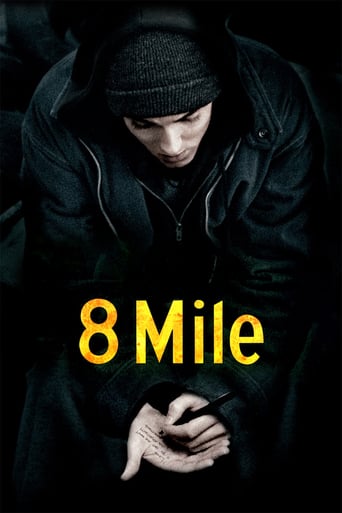

Reviews
Perfect cast and a good story
Good movie but grossly overrated
By the time the dramatic fireworks start popping off, each one feels earned.
Actress is magnificent and exudes a hypnotic screen presence in this affecting drama.
If you had the chance to recreate your life, would you be where you are now? The Man Without a Past, a Finnish film by writer and director, Aki Kaurismäki, allows one man to do just that— though not in the most ideal way. After being severely beaten by three heartless crooks, this man (Markku Peltola) wakes up on a beach inhabited by the homeless (and nearly homeless) without a single memory of his former life—not even his own name. This beach community of misfits, living on the Salvation Army soup kitchen, help nurse the nameless man back to health, and he begins his bewildering struggle to build an identity from nothing. As the nameless man (let's call him M) becomes friends with a man named Nieminen (Juhani Niemela), we see just how poor the people living on this beach are. Nieminen, we discover, is an alcoholic who spends more money on beer than his own children's dinner. Director Kaurismäki, however, does not want the audience to pity this community, but rather, to laugh at it. The people's reaction to M's bizarre situation, for example, is so blasé that they themselves become the ridiculous. "Oh, that's bad," replies Nieminen's wife when M explains his complete memory loss. Well, yes. It is. Though it seems strange to make light of homelessness, the humor is actually what allows the audience to see the characters as people instead of basket cases. When Nieminen says he will be offended if M refuses his offer to buy him a beer, we see that even though they are dreadfully poor, the people that live on this beach still have a deep sense of pride. As M becomes more involved in the community, he travels to the unemployment office in search of a job, as he hopes to live amongst his new friends. Kaurismäki presents a grim view of the welfare system: because he cannot provide a name for the application, M is accused of fraud and is thrown out of the employment office with no help. Kaurismäki, who worked as a post-man, dishwasher, and many other not-so-glamorous jobs before becoming a director, is sending a clear message: dignity is not determined by social class, but rather, by kindness and respect. Shortly after his run in at the employment office, M stumbles into a job at the Salvation Army when a worker named Irma (Katie Outinen) sees that he is highly capable. With his earnings he makes a home for himself in an old storage unit near Nieminen's trailer. Among his few possessions is an old jukebox that blasts 1950s rock 'n' roll music, its lively beat invigorating the slow-paced film. Now M's love interest, Irma—the shy, conservative employee at the Salvation Army who secretly listens to American hits before bed— is easily wooed by his taste in music and unabashed affection for her. Like in M's relationship with Irma, actor Peltola is able to subtly weave M's character into our hearts until, eventually, we realize we've been rooting for him all along. Outinen too is a superb actress. Though she has few lines, when her character Irma is with M, her expression perfectly conveys both the discomfort of an unfamiliar situation and a desire to know what will happen next. Irma is not the only one who M brings out of their shell. M teaches The Salvation Army band, which previously knew only one song (which was, quite simply, a drag), about the glory that is rock 'n' roll. They soon put on a show with the director of the Salvation Army, a woman we learn who has wanted to be a singer her whole life, and the whole community comes together to listen. Things take a turn for the worse for M, however, when he is a witness to a hilariously simple bank robbery: one man and his rifle. The bank clerk nonchalantly brings out the money while M just stands there obliviously. "I'm sorry I have to do this," the robber says, locking them in the vault, to which M replies that he understands given the situation at hand and not to worry about it. Like the idea of a man with severe brain damage waking up in a homeless village and starting a new life with no questions asked, it's the kind of hilarious that hits you three days later when you're brushing your teeth. Unfortunately for M, the police don't find it so funny. Kaurismäki again shows a distaste for state institutions as the police unlawfully detain M for not giving them his name. Irma comes to the rescue, sending M a lawyer who promptly gets M his freedom whose face, we discover, has been plastered across newspapers with the headline "Who is this man?" On his way back to his new home, M is told that his wife contacted the police when she saw his picture in the paper and that he can go back home. But where is home, anyway? M can take back his name, and with it his old life, or he can choose to stay with Irma and his unconventional friends. At the end of this fantastically funny film, Kaurismäki presents a dramatic ultimatum that will change everything for M, as The Man Without a Past is now the man with two futures.
I watched Kaurismäki's Drifting Clouds (1996) and pretty much hated it. Then I saw that The Man Without a Past had been nominated for an Oscar so I thought I'd give Kaurismäki another chance. Fool me once, shame on you. Fool me twice, shame on me. It's somehow even worse.There's some really bad acting (or directing) here: the nurse, the small kids, the guard, the soup lady and the band members for just a few examples. Completely stiff and wooden delivery of dialogue. The main characters aren't much better or even worse. Kati Outinen's acting especially is something so emotionless I have no idea why someone would like it. I realize it tries to caricature Finnish mannerisms but I didn't find it funny in the slightest. And it's not just the dialogue, the actors also move in a stiff and unnatural way. The only actor who seems to know what she's doing is Elina Salo who plays the part of the dock clerk. She was also the only good actor in Kaurismäki's Drifting Clouds. She acts and speaks like a normal Finnish person and has emotion behind her lines. I just don't understand this. Is she really the only decent actor in these films or is this some artistic choice by the director? If it was, I can't fathom what the point of it would be. I guess the movie is supposed to be a comedy, at least partly. But in order to find comedies funny you have to have some kind of engagement to the characters. To put it simply, either the character has to be sympathetic or they have to be completely repulsive. The movie completely failed to make me care about the main character in either way. Everything's also delivered completely deadpan. Deadpan comedy could obviously work but to do the whole movie in that style? Not for me. There were a couple of chuckles during the bank scene but otherwise not even that. There was nothing interesting going on with the cinematography either. Most shots were just completely still and extremely slow. I mean, a complete shot of a band playing a rock song which doesn't seem to have any relevance to anything? What is this? I watched most of the movie with a deep frown on my forehead wondering if someone actually seriously made this movie. I couldn't get anything meaningful from this movie. I guess if you really start to think about it, it was at least partly about how bureaucracy and the government can easily deny help based on a technicality and how friends are therefore important when you hit dire straits. This doesn't have any interest to me however because I don't care about the main character. It is an utterly boring film without any entertainment value. To the people wondering if there was something critical that was lost in the translation, I can assure you that there wasn't. I gave Drifting Clouds one extra star for a total of two because Elina Salo had a more prominent role in it. I can't do that here because she's in the film only for a minimally short time.
The film is about a man who gets amnesia after being attacked by a group of thugs in Helsinki. He becomes part of a community of underprivileged workers who assist him in building his life together.I can't decide whether there was something wrong with the acting or it was an accurate interpretation of Finnish mannerisms. The acting appeared a bit stiff and silent, and there wasn't a single smile throughout the film - even in situations which were meant to be funny. Having said that, there is a warmth and humanity coming out of these austere characters - just not the way we're used to. The cinematography is great, with stunning visuals of the gritty Helsinki suburbs. It is not a masterpiece, but if you are a fan of international cinema you will enjoy watching it.
Aki Kaurismäki's The Man Without a Past tells the story of a goodhearted man trying to recreate his life after developing amnesia. His search for work, love and answers takes place in the Finnish city of Helsinki, where M (Markku Peltola) finds out the way he truly wants to live.Peltola does a convincing job at playing a man without a past. There is a considerable difficulty in creating a memorable persona for a role in which the character has none prior. Peltola keeps everyone guessing, including himself, by allowing the character of M to develop slowly throughout the film, learning from his new experiences, adapting to the current situation and never relying on mannerisms or information created outside the film itself. The audience is able to share the journey, and our sympathy for M's situation is heightened. The film addresses the actions of people and their disparities quite clearly. The story starts with M being brutally attacked in the dark night of Helsinki, then mugged and left for dead. For a first scene, the plot doesn't do much for creating a positive view of the city, or of Finland itself. However, Kaurismäki artfully crafts his story to bring the characters (and the audience) down to the very depths of despair, only then to bring them back up to a feeling of affirmation for humanity. Because he struggles with his identity, every encounter is a new one for M, and he is only shown compassion by many of those he meets. People give what they can and make an honest effort to help M make the transition into a new life. Iron-fisted landlords bend the rules, preeminent lawyers defend his rights,and even a bank robber turns out to be altruistic in his plight.A concerning part of all this compassion, however, is the manner in which it is presented. Finns are portrayed as, well, very Finnish. Emotions are kept in check, and not much is ever outwardly expressed as appreciated as so much necessary. Still, the human side of an outwardly stern community can be felt with a certain energy. People band together when they need to, and give the support that those like M need at the moment to survive.A part of this survival is not so much physical for M, but emotional as well with the Salvation Army worker Irma (Kati Outinen). Shortly after M receives the communal assistance and compassion from those around him, he too feels the need to share it with someone, in his case, a woman. The relationship between M and Irma could be described as cute to some: a pair of middle-aged adults attempting their very best shot at a youthful romance. The simplicity of their relationship, with walks in the woods, rides in cars, and home-cooked dinners is heartwarming, and gives a glimpse into the sincerity the two share for the comfort and security afforded by their relationship. The two merely want to be happy, and they do their best to participate in the love that brings them to that destination.The Man Without a Past shows not only how a man can choose to live, but also how he can change. The film presents the challenges of relationships, and the things that tear them apart. M receives a second chance, and in doing so, he perhaps subconsciously changes his way of life. Though he has no knowledge of his prior self, the decisions he makes after starting over may very well be influenced by the mistakes he had lived through before. In the end, Kaurismäki brings us full-circle, with the level of M's happiness showing the validity of his decisions in the new life he has created. All in all an enjoyable film delving into the culture and community of Finland that would be a great flick to see on a slower evening allowing you to take in the subtle interactions between it's vast cast of characters. 7 stars out of 10.
